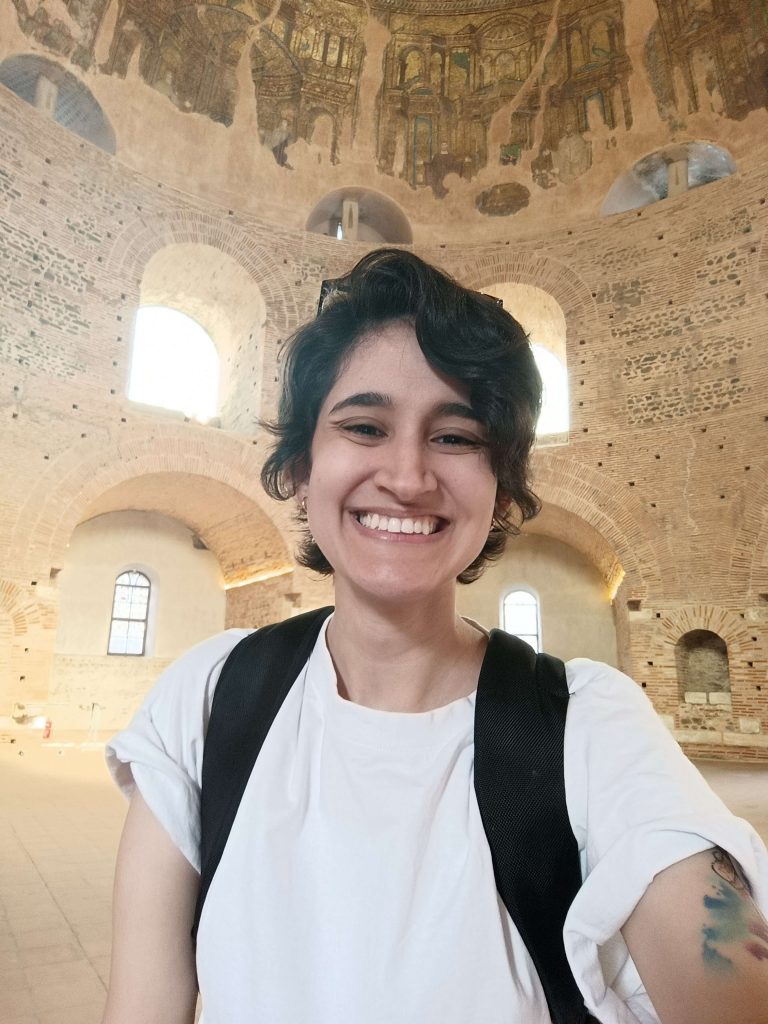By Jamile Hamideh
Doctoral Researcher at the department of Supply Chain Management and Social Responsibility (Helsinki)

As doctoral researchers at the Hanken School of Economics, part of our work is to assist in teaching bachelor’s and master’s degree courses. Being a TA involves a wide range of tasks, from delivering lectures to doing administrative work, grading assignments and even accompanying students on field trips.
During my first year, I assisted in three courses and served as an academic mentor in another. This year, I’ll be a TA in at least two more courses during the autumn semester, and hopefully in a couple of others in the spring. Looking back and reflecting on the experiences I’ve had so far, here are some of the key lessons I’ve learned by being a teaching assistant at Hanken:
In-class time is just the tip of the iceberg
Whenever we think about teaching, the first image that comes to mind is usually that of a classroom. As TAs, we get to see how those two or three hours spent teaching in class are just one step in a much larger process. Courses are designed based on what students need to learn, with each lecture being planned months in advance to ensure that learning goals are achieved. Every component of an assignment is put to the test before being presented to students. If we give them a reading list with five academic articles, we have not only read those articles but likely a dozen more in order to find the ones that would fit best with the course goals, student levels, and current events. And not to mention all the grading… For each assignment, we prepare a rubric in advance, add it to the system, and only then get to work on the grading. And when a course is finally completed, there is still more to do! We collect feedback from students, try to see what could be improved in the next iteration of the course, and start the whole process again.
The way we teach has had major changes in recent years
In traditional views of education, teachers are the experts, gatekeepers of knowledge. They stand in front of the classroom and present information to students that passively receive it. That type of teaching is content-focused, and there are usually clear right and wrong answers to questions since the materials are centered on facts and details.
In recent years, however, we have started to recognize that students can learn better when they take a more active role. Any course planning starts not from the content the teacher intends to share, but rather from what students should learn – which are very different things! Students and teachers collaborate to co-create knowledge, and there is a high degree of interaction between all members of the classroom. Learning is seen as a process that students shape, as they should not only learn concepts, but how to view them critically and apply them to real-life scenarios.
That distinction between content-based and learning-based approaches is not absolute, of course. It exists in a spectrum, and in our courses at the Supply Chain Management and Social Responsibility department, we try to get closer to this more interactive way of teaching. That is why many of our courses feature role-playing games, such as the Beer Game and the Manufacturing Game, and why we have project courses in which students do work for real companies and organizations. As a bonus, these types of activities also provide opportunities for students to learn skills beyond the course material and make contacts in the industry that can be highly relevant after they graduate.
Teaching can help you to solidify your own learning
Einstein has famously said that “if you can’t explain it simply, you don’t understand it well enough”, and I dare say that anyone who has ever stood in front of a classroom has experienced this. During our research, we encounter the same concepts so many times that we often take them for granted. Take “supply chain”, for instance, the main subject of our department. We all know what it is; we read and write about it every single day. But how well can we explain it, especially when our students ask questions from angles we had never thought about before? As a TA, I have found that going back to even some of the most basic concepts of our discipline has made me see them in a new light. That is not the most comfortable thing, sometimes, when you have to admit that you don’t really have an answer, but at the end of the day, we become better researchers for it.
No course is ever taught the same twice
The COVID-19 pandemic has made it visible to the world just how much everything depends on the good functioning of supply chains, with the product shortages we have all experienced showing how a disruption from halfway around the globe can affect our lives. This increased awareness of global events shapes much of our teaching and learning. When I was a master’s degree student, the pandemic and its effects were a major prism through which we viewed the contents presented to us. More recently, we had the Suez Canal obstruction and the war in Ukraine as key events shaping our understanding of global supply chains. Influenced by these and other events, and sometimes even their own work experience in logistics, our students come to the classroom with new questions, perspectives and insights. We incorporate the new discussions and approaches to our courses, making them more relevant, dynamic and ultimately, I hope, more interesting. Every year, even when we teach the same basic concepts, the world that surrounds us changes, and we change with it.
There is always much more to learn
Natural-born teachers are rare, but teaching is, thankfully, a skill that can be learned. Participating in mentorships to learn from more experienced teachers and taking courses in university pedagogy are great ways to do it, and so is practice. Going to the classroom, putting yourself out there and even becoming slightly uncomfortable can help you to learn both about your own subject and the art of teaching, and that is a process that never ends. There is always more to learn, as our subjects evolve alongside teaching methods and tools. This is a life-long journey, and I couldn’t be happier to buckle up for the ride.

Jamile Hamideh does research in humanitarian logistics, focusing on the the way technology can be used to increase the participation of beneficiaries in humanitarian supply chains. She combines her background in international and privacy law with experience in the tech sector with a passion for design and decolonial thinking.


